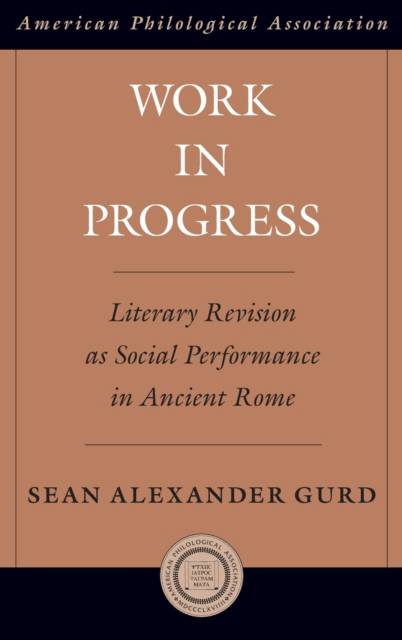
Bedankt voor het vertrouwen het afgelopen jaar! Om jou te bedanken bieden we GRATIS verzending (in België) aan op alles gedurende de hele maand januari.
- Afhalen na 1 uur in een winkel met voorraad
- Gratis thuislevering in België vanaf € 30
- Ruim aanbod met 7 miljoen producten
Bedankt voor het vertrouwen het afgelopen jaar! Om jou te bedanken bieden we GRATIS verzending (in België) aan op alles gedurende de hele maand januari.
- Afhalen na 1 uur in een winkel met voorraad
- Gratis thuislevering in België vanaf € 30
- Ruim aanbod met 7 miljoen producten
Zoeken
Work in Progress
Literary Revision as Social Performance in Ancient Rome
Sean Alexander (Associate Professor of Classics, Modern Language
€ 159,95
+ 319 punten
Omschrijving
Work in Progress offers the first in-depth study of the cultural and social importance of literary revision among ancient Greek and Roman authors.
Specificaties
Betrokkenen
- Auteur(s):
- Uitgeverij:
Inhoud
- Aantal bladzijden:
- 192
- Reeks:
Eigenschappen
- Productcode (EAN):
- 9780199837519
- Verschijningsdatum:
- 5/01/2012
- Uitvoering:
- Hardcover
- Afmetingen:
- 156 mm x 242 mm
- Gewicht:
- 388 g

Alleen bij Standaard Boekhandel
+ 319 punten op je klantenkaart van Standaard Boekhandel
Beoordelingen
We publiceren alleen reviews die voldoen aan de voorwaarden voor reviews. Bekijk onze voorwaarden voor reviews.









